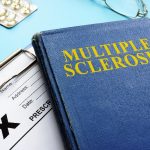
A long-awaited ban on menthol cigarettes has been delayed indefinitely, the Biden administration said Friday. “This rule has garnered historic attention, and the public comment period has yielded an immense amount of feedback, including from various elements of the civil rights and criminal justice movement,” U.S. Health and Human Service Secretary Xavier Becerra said in an agency statement. “It’s clear that there are still more conversations to have, and that will take significantly more time.” The White House had already missed a previous deadline it set to decide on the proposed ban by March. U.S. Food and Drug Administration Commissioner Dr. Robert Califf, a supporter of the ban, told House lawmakers at a budget hearing earlier this month that he hoped a decision would come by the end of the year because smoking costs lives, the New York Times reported. “It’s one of our top priorities, so I would sure hope so,” he said at the time. “From the point of view of the FDA and me as an individual, given what I’ve seen in my life, we’re talking about over the next 30 years, probably 600,000 deaths that could be averted,” Califf testified. Most would be Black Americans who are consumers the tobacco industry targets, he added. On Friday, NAAACP President Derrick Johnson took issue with the latest delay. “Today’s news from the Biden administration is a… read on > read on >


















